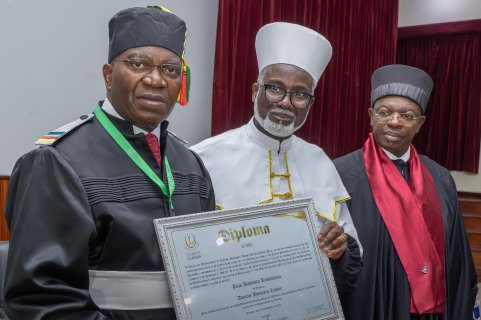"There was no decision to delay the implementation of the agreement. The position expressed at the press conference is the exclusive responsibility of the executive. It did not communicate this to its partners, which is us, with whom it signed an agreement, and it did not speak to anyone," the secretary general of the General Central of Independent and Free Trade Unions of Angola (CGSILA) told Lusa.
The workers' representative therefore warned that "it is up to the executive itself to assume the consequences that arise from this, because the agreements are to be fulfilled in full, not in part."
The issue at hand is the announcement made on Friday by the Secretary of State for Labor and Social Security, Pedro Filipe, that the salary adjustment of up to 25 percent for public employees, scheduled for this month, should take place in the first quarter of the year but is dependent on the approval of the legislative package for this purpose by the National Assembly.
The general secretary of CGSILA, Francisco Jacinto, said that the agreement was signed in May last year and to date "the only thing that has been implemented is the national minimum wage, nothing more".
"We believe that this is not enough to enforce the signed agreement. The State is doing very little in terms of the commitments it made to the Angolan trade unions", he stressed.
Francisco Jacinto criticized the Government's way of communicating, regretting that the trade unions "were never consulted on the matter" and were "caught by surprise" after finding out through the media.
"And the unions are already willing to reactivate the strike that was suspended based on the agreement reached", stressed the union leader.
According to Francisco Jacinto, the arguments presented by the government to postpone this increase have "no place either in fact or in law", claiming that "the only power that parliament has is to approve the General State Budget".
"It is not the National Assembly's place to deal with the matter of the distribution of budget allocations. That is not and never has been the role of parliament. Once the Budget has been approved, the executive branch is responsible for distributing it", he said, warning that they will not accept any "delaying tactics to delay the process".
"The agreement clearly stated that, from January onwards, the executive branch must implement the 25 percent, that is how it was agreed and that is how it must be done", he stressed.
According to Francisco Jacinto, the trade unions are not even considering the possibility of postponing the implementation.
"We are not yet at the stage of considering whether it will be retroactive or not, we are now concerned that the executive branch must comply with what it agreed with the trade unions, any other understanding will not be ours", he said.
The general secretary of CGSILA, one of the three trade unions that signed an agreement with the Government in May 2024 that ended several phases of public sector strikes, also said that there are other problems with implementing the agreement itself.
For example, he continued, there were no the agreements regarding the implementation of subsidies in remote areas were fully complied with, as were the agreements regarding the social security tax council and the definition of the new model for the Income Tax on Work (IRT).







